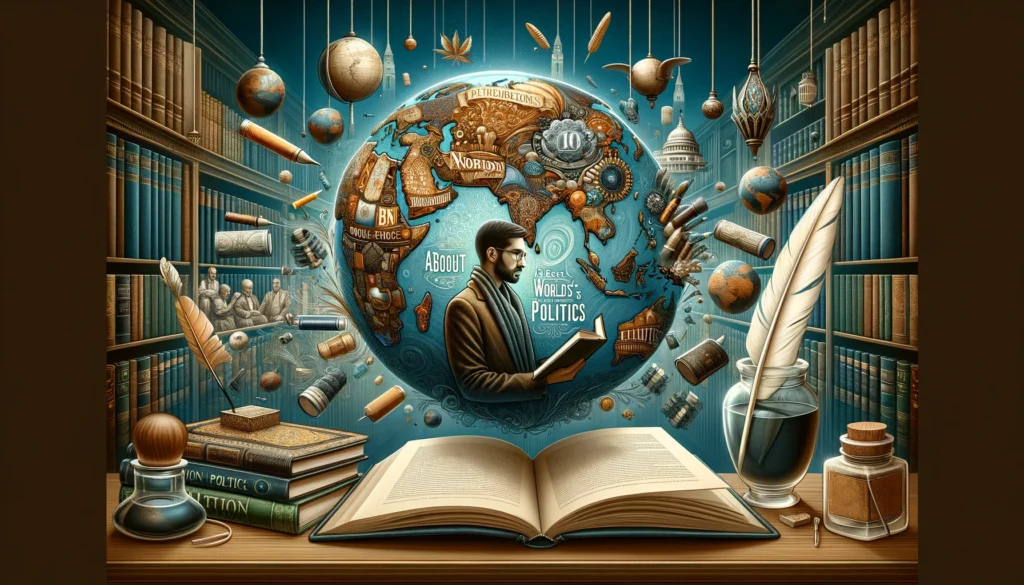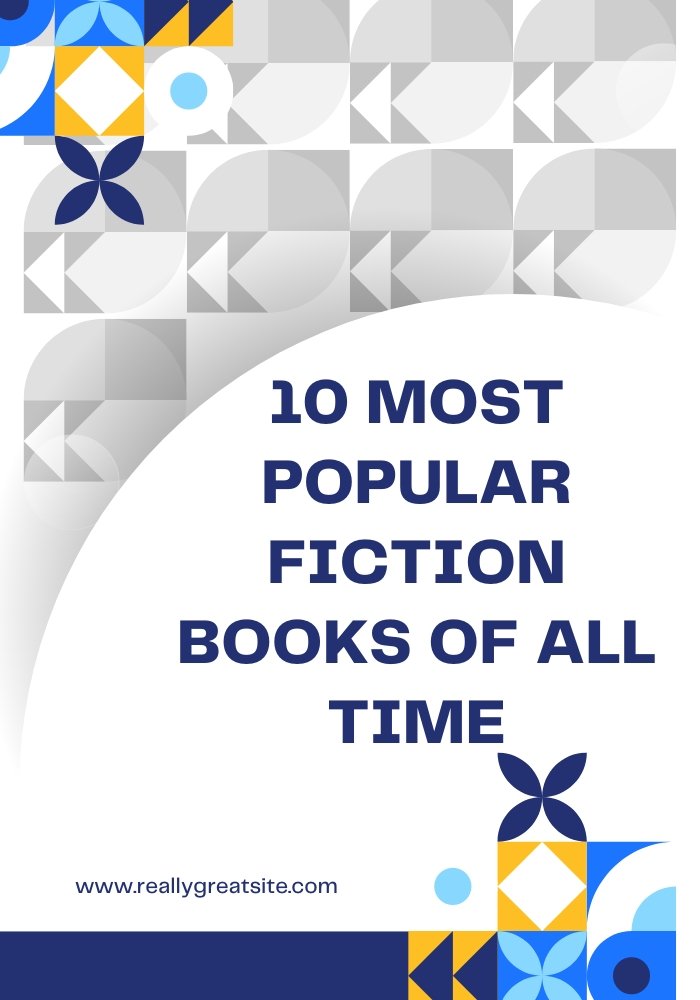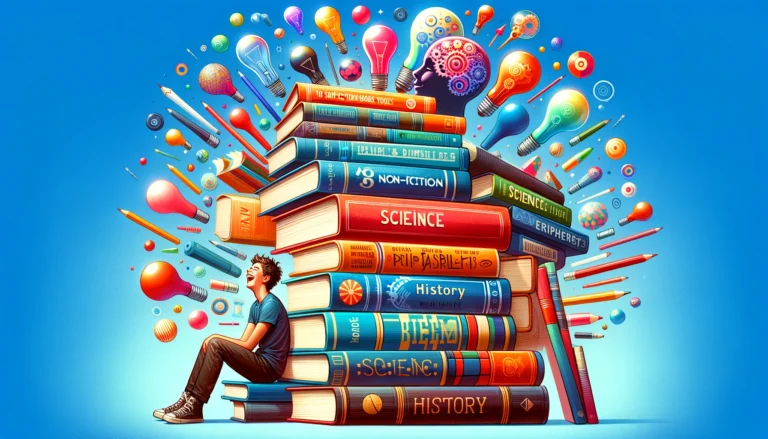Introduction
In a time where political landscapes across the globe are rapidly evolving, a deep understanding of the forces shaping our world is essential. For the curious mind yearning to grasp the intricacies of global politics and the stories behind today’s headlines, the following ten non-fiction books serve as a beacon. These works are not just texts but keys to unlocking a vast treasure of knowledge about global dynamics, power struggles, and the essence of diplomacy. Whether you are a seasoned politico or a newcomer eager to decode the world’s complex political matrix, these books offer rich insights, thought-provoking analyses, and a compelling narrative that binds the past with the present. Embark on this enlightening journey through the annals of political history and theory, and emerge with a broader, more nuanced perspective of our global society.
1. “The Clash of Civilizations and the Remaking of World Order” by Samuel P. Huntington

(1996) Huntington’s groundbreaking work posits a world redefined not by ideological or economic lines but by deep-seated cultural and religious identities. He meticulously argues that the primary sources of global conflict will pivot around these civilizations’ clashes. Huntington crafts a narrative that is as engaging as it is provocative, encouraging readers to ponder the future contours of global conflict. Through vivid examples and sharp analysis, the book not only challenges the reader’s intellectual curiosity but also stirs a profound contemplation about the enduring power of culture and identity in shaping world affairs. It is a vital read for anyone seeking to understand the underlying cultural tensions that influence global politics today.
2. “The Tragedy of Great Power Politics” by John J. Mearsheimer (2001)

Mearsheimer’s analysis is a compelling exposition on the inevitability of conflict among great powers, grounded in the theory of offensive realism. He argues that the anarchic nature of the international system compels states to seek dominance, often leading to a tragic cycle of power struggles. The book is rich with historical case studies that lend weight to his thesis, making it a profound reading experience that challenges conventional notions of peace and stability. Mearsheimer’s authoritative voice and rigorous scholarship prompt readers to critically engage with the realpolitik of state behavior, making “The Tragedy of Great Power Politics” an indispensable guide for understanding the mechanics of global power dynamics.
3. “Diplomacy” by Henry Kissinger (1994)

In “Diplomacy,” Kissinger, a towering figure in American foreign policy, provides an unparalleled exploration of the art and craft of international relations through the ages. Drawing on his vast experience and the wisdom of statesmen from Richelieu to Roosevelt, Kissinger offers insights into the complex interplay of strategic interests and human folly that defines diplomatic history. The narrative not only illuminates the past but also sheds light on the challenges and opportunities of modern diplomacy. Kissinger’s reflections encourage readers to appreciate the nuances of negotiation and the delicate balance of power that underpin peace and conflict among nations. This book is a masterclass in diplomacy from one of its most seasoned practitioners.
4. “The End of History and the Last Man” by Francis Fukuyama (1992)

Fukuyama’s thesis that liberal democracy may signify the endpoint of humanity’s socio-political evolution is as controversial as it is captivating. Through a lucid and engaging narrative, he explores the deep currents of philosophical and historical developments that have led to the predominance of democracy. The book invites readers to reflect on the nature of human governance and the possibility of a universal civilization built on shared values. Fukuyama’s optimistic vision challenges readers to consider the role of democracy in shaping the future, making “The End of History and the Last Man” a seminal work for those intrigued by the potential zenith of human political organization.
5. “The World Is Flat: A Brief History of the Twenty-First Century” by Thomas L. Friedman (2005)

Friedman’s examination of globalization and its transformative effects on the world economy, politics, and culture is both enlightening and accessible. With a journalist’s eye for detail and a storyteller’s flair, he unravels the complex web of technological and social processes that have “flattened” the world, creating new opportunities and challenges for individuals and nations alike. The book is a mosaic of anecdotes, analysis, and predictions that together offer a vivid picture of a world in flux. Friedman’s optimistic yet critical perspective on globalization encourages readers to navigate the new global landscape with awareness and agility.
6. “Prisoners of Geography: Ten Maps That Tell You Everything You Need to Know About Global Politics” by Tim Marshall (2015)

Marshall’s book is a compelling testament to the enduring influence of geography on global politics. Through ten meticulously chosen maps, he illustrates how mountains, rivers, and other geographical features have shaped the destinies of nations and the course of history. With an engaging narrative, Marshall makes complex geopolitical concepts accessible to a broad audience, encouraging a deeper understanding of the ways in which physical landscapes drive political decisions. “Prisoners of Geography” is an eye-opening journey that challenges readers to look beyond current events and see the deeper, unchanging forces at work in the world.
7. “The Post-American World” by Fareed Zakaria (2008)

Zakaria presents a thought-provoking analysis of the rise of new global powers and the relative decline of American dominance. He artfully navigates the intricacies of global economics, culture, and politics to paint a picture of a multipolar world where the United States is one among many influential actors. Zakaria’s balanced and insightful examination encourages readers to embrace the complexity of the current global order and to consider the United States’ role in a rapidly changing world. His vision of a post-American world is not one of decline but of transformation, offering a hopeful perspective on the future of global leadership.
8. “Destined for War: Can America and China Escape Thucydides’s Trap?” by Graham Allison (2017)

Allison explores the potentially cataclysmic rivalry between the United States and China through the lens of Thucydides’s Trap, the historical pattern of conflict between rising and established powers. Combining historical analysis with current affairs, Allison crafts a narrative that is both a warning and a call to action. His detailed examination of past rivalries and the specific challenges posed by the Sino-American relationship urges readers to confront the possibility of war while seeking pathways to peace. “Destined for War” is a crucial read for anyone interested in the future of global politics and the fate of the world’s two superpowers.
9. “The New Silk Roads: The Present and Future of the World” by Peter Frankopan (2018)

Frankopan shifts the focus from the West to the heart of Asia, exploring the resurgence of the Silk Roads as the central arteries of the 21st-century world. Through a rich tapestry of history and contemporary analysis, he illustrates how Asia is reclaiming its position as the global economic and cultural hub. Frankopan’s narrative is a mesmerizing journey through time and space, highlighting the interconnectedness of the world’s fate with the fortunes of Asia. “The New Silk Roads” invites readers to reconsider the global balance of power and the emerging future shaped by the East.
10″On China” by Henry Kissinger (2011)

Kissinger, with decades of experience in US-China relations, offers an insightful exploration of China’s strategic philosophy, foreign policy, and the complex dynamics of its relationship with the United States. Blending historical depth with the immediacy of recent events, Kissinger provides a framework for understanding China’s approach to diplomacy, strategy, and negotiation. “On China” is an essential guide for anyone seeking to comprehend the rise of China and its implications for global politics. Through Kissinger’s expert analysis, readers gain a nuanced view of China’s past, present, and possible future on the world stage.
Conclusion
The exploration of these ten masterworks offers a panoramic view of the forces that have shaped, and continue to shape, the political destiny of our world. From the intricate dance of diplomacy to the stark realities of power struggles, from the sweeping tide of globalization to the silent influence of geography, these books collectively weave a comprehensive narrative of world politics. They challenge, inspire, and enlighten, providing the tools necessary for a deeper engagement with the complexities of our global society. In a world brimming with change, understanding the underpinnings of political movements and the motivations of leaders is more than an academic exercise it is a requisite for informed citizenship and active participation in the global community. Through the pages of these works, readers are equipped not only with knowledge but with the insight needed to navigate the turbulent waters of contemporary politics. Let these books be your compass in the ever-evolving journey of understanding the world’s political landscape.






